Contact
April 2021 NextGen Leaders Delegation
April 6–29, 2021
The April 2021 delegation of the U.S.-ROK Next Generation Leaders Program (NextGen) included ten rising Asia policy professionals with interests in varying fields, including technology and national security. Led by John Delury (Yonsei University), with the assistance of NBR’s Alison Szalwinski, Julia Oh, Melissa Newcomb, and Olivia Truesdale, this delegation met virtually to overcome travel challenges posed by the Covid-19 pandemic. Throughout the month, participants met with academics, NGO staff, and from U.S. and South Korean government officials to discuss security issues and South Korean foreign policy.
Following a kickoff meeting with senior expert John Delury, the 2021 virtual delegation participants met with representatives from the U.S. Embassy in Seoul for a briefing on U.S.-Republic of Korea (ROK) affairs. The delegation participants also had the opportunity to meet with the Director General of North American Affairs Yunju Ko at the South Korean Ministry of Foreign Affairs to discuss ROK foreign policy and multilateral cooperation.
NBR’s Spring 2021 virtual NextGen delegation met with ROK MOFA Director-General of North American Affairs Yunju Ko. DG Ko gave an overview of U.S.-ROK relations under the new Biden administration and took questions from the delegates. #USROK #ROKMOFA #KORUS pic.twitter.com/bOfJjiAL2V
— The National Bureau of Asian Research (@NBRnews) April 14, 2021
In a briefing with Liberty in North Korea (LiNK), South Korea Country Director Sokeel Park and Geum Hyok Kim, Advocacy Fellow for LiNK and a North Korean defector, discussed the human rights situation in North Korea, changes in North Korean society, and the impact of Covid-19 on information flows to the DPRK.
The delegation also held discussions with established scholars. Yul Sohn, director of the Center for International Studies and Professor of International and Japanese Political Economy at Yonsei University discussed ROK-Japan relations and cooperation. Jae Ho Chung, Professor of Political Science and International Relations and Director of the Program on U.S.–China Relations at Seoul National University, presented on China’s strategic intentions and answered questions on a variety of topics, including U.S.-ROK-China relations.
Delegation participants met National Assembly members Gunyoung Yun, a representative of the Democratic Party of Korea and special envoy to North Korea, and Jin Park, a representative of the People Power Party with a long career in and outside of politics. By meeting with representatives from both sides of the political spectrum, delegation participants were able to engage with the nuances of party dynamics in South Korean politics, particularly regarding relations with North Korea.
Next Generation delegation participants also had the opportunity to engage with officials from South Korea’s Ministry of Defense as well as the United Nations Command. In the briefings and robust Q&A sessions, participants gained a comprehensive understanding of the defense situation on the Korean peninsula and the security challenges facing the ROK.
To celebrate Korean culture, delegation participants received a Korea-themed souvenir package with snacks and skincare products and joined a virtual movie night in which they watched 26 Years, a 2012 movie depicting a fictional revenge plot against the individual who approved the killing of civilians during the May 18th Democratic Movement in Gwangju.
DELEGATION
Participants’ titles and institutional affiliations as of the time of the delegation.
Abigail Bard
Asia Policy Analyst, National Security and International Policy, Center for American Progress
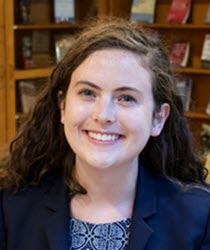
Abigail Bard is the Asia policy analyst on the National Security and International Policy team at the Center for American Progress. Her work focuses on U.S. relations with allies and partners in the Indo- Pacific, particularly Japan and South Korea. Before joining the Center, Bard was a Fulbright English Teaching Assistant in South Korea. Bard has a bachelor’s degree in linguistics from Dartmouth College and is pursuing a Master’s in Asian Studies at Georgetown University. She speaks Japanese and Korean.
Jason Bartlett
Research Assistant, Energy, Economics, and Security Program, Center for a New American Security

Jason Bartlett is a Research Assistant for the Energy, Economics, and Security Program at the Center for a New American Security. His work focuses on global proliferation finance networks and sanctions evasion tactics with specific emphasis on North Korea, Iran, and Venezuela. He also analyzes the adverse effects of new financial technologies on the global financial system, cybersecurity, and sanctions enforcement. Prior to joining CNAS, Jason worked at C4ADS, CSIS Korea Chair, The Committee for Human Rights in North Korea (HRNK), and The Asan Institute for Policy Studies in South Korea. He also volunteered as a News Translator for Daily NK and provided four years of resettlement assistance for North Korean defectors through various human rights NGOs. Jason holds an MA in Asian Studies from the School of Foreign Service and a Graduate Certificate in Refugee and Humanitarian Emergencies from Georgetown University, as well as a BS in Spanish and International Studies from SUNY Oneonta. He also graduated from the Korean Language Institute (KLI) at Yonsei University in Seoul, South Korea.
Alexander Bowe
Policy Analyst, Security and Foreign Affairs, U.S.-China Economic and Security Review Commission

Alexander Bowe is a Policy Analyst for Security and Foreign Affairs at the U.S.-China Economic and Security Review Commission, where he researches Chinese Communist Party influence operations and ideology, China’s space sector, and geopolitics in the Indo-Pacific region. Before joining the Commission in 2016, he was a research assistant on a project studying science diplomacy in the South China Sea. Prior to that, he studied at Tsinghua University in Beijing, where he translated The Inertia of History: China and the World in the Next Decade by Yan Xuetong, Dean of Tsinghua’s Institute of Modern International Relations. He received his Master of Arts in International Studies with concentrations in Chinese Studies and Forecasting from the Josef Korbel School of International Studies at the University of Denver. He received his Bachelor of Arts in Global Studies from Friends World Program at Long Island University. He is proficient in Mandarin Chinese.
Khyle Eastin
Intelligence Analyst, CrowdStrike

Khyle Eastin is an Intelligence Analyst at CrowdStrike, where he focuses on China and foreign and defense affairs in Asia. He is a co-founder and the Chief Research Officer of the National Association for Black Engagement with Asia. Prior to these roles, Khyle served as a Peace Corps volunteer in China. His professional and academic interests include China’s national security and foreign policy developments—including its activities in outer space and the Arctic, and its interests in the Middle East region. Khyle holds an MA in Asian studies from Georgetown University’s School of Foreign Service, and a BA in international relations from Pomona College.
Hannah Fodale
Research Associate, Japan Chair, Center for Strategic and International Studies

Hannah Fodale is a research associate with the Japan Chair at the Center for Strategic and International Studies (CSIS), where she focuses on projects involving U.S.-Japan relations and security in the Indo-Pacific region. She is also the editor of the Debating Japan newsletter and producer of the Asia Chessboard podcast. Prior to joining CSIS, she spent time working for the U.S. Department of State in Okinawa, Japan. Hannah holds an M.A. in security studies from the School of Foreign Service at Georgetown University. She graduated cum laude with a B.S. in foreign service and a certificate in Asian studies from the School of Foreign Service at Georgetown University, completing a thesis on the structure of military alliances and U.S.-Japan interoperability.
Paul Lee
Senior Program Assistant for Youth Programs, U.S. Institute of Peace
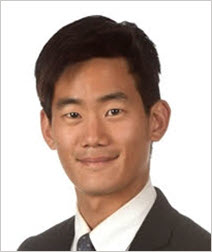
Paul Kyumin Lee is a Senior Program Assistant for Youth Programs at the U.S. Institute of Peace, and previously worked in the China and North Korea program at USIP. Before joining USIP, Paul worked in the Asia Program at the Carnegie Endowment for International Peace as a James C. Gaither Junior Fellow. Outside of work, he volunteers as the President of Divided Families USA, an NGO that advocates for a formal mechanism for Korean Americans to reunite with their relatives in North Korea, and co-produces the Divided Families Podcast, a platform for connecting stories of family separation. Paul has been a dialogue facilitator at the Strait Talk Symposium, a civil society dialogue workshop at Brown University and the University of California, Berkeley for youth from mainland China and Taiwan, and at Seeds of Peace, a summer camp in Maine for teenagers from conflict areas. He graduated from Yale University with a bachelor’s in political science and speaks Korean, Mandarin, Japanese, and Spanish.
Lev Nachman
Ph.D. Candidate in Political Science, University of California, Irvine

Lev Nachman is a Ph.D. candidate in Political Science at the University of California, Irvine. He is also a Visiting Scholar at National Taiwan University’s department of sociology. His research interests include social movements and party politics in Taiwan and Hong Kong, Chinese politics, comparative politics, and political sociology. Mr. Nachman received his MA in International Studies from Johns Hopkins University’s Nanjing Center for Chinese and American Studies and a BA in Economics from the University of Puget Sound.
Katherine Schultz
Research Associate, Global Taiwan Institute
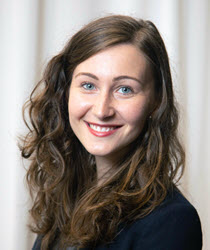
Katherine Schultz is a research associate at the Global Taiwan Institute. Her research centers on the complex triangle of relationships between the United States, Europe, and Taiwan. Her past articles have analyzed European nations’ relations with Taiwan (as well as the PRC), and she is currently conducting research on transatlantic approach toward China and Taiwan.
Katherine recently completed her master studies at the George Washington University, Elliott School of International Affairs. During her studies, she was also a recipient of the Foreign Language and Area Studies Fellowship. In June 2019, Katherine participated in the 2019 Mosaic Taiwan Fellowship in Taipei, Taiwan, introducing various aspects of US-Taiwan relations and Taiwan foreign policy. In the past, Katherine was an intern at the Czech branch of UN Global Compact and the Europeum think tank. She also interned at the Czech Embassy in London. In 2017, Katherine was awarded the Huayu Enrichment Scholarship which allowed her to complete a 9-month Mandarin Chinese language program in Taiwan. She received a BA in Political Science and International Relations from Charles University in Prague. Katherine is a Czech and English bilingual speaker; she is fluent in Mandarin Chinese and has a passive knowledge of several European languages.
Emily Weinstein
Research Analyst, Center for Security and Emerging Technology, Georgetown University
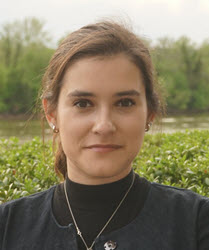
Emily Weinstein is a Research Analyst at Georgetown’s Center for Security and Emerging Technology (CSET), focused on Chinese innovation and domestic S&T policies and development. Before joining CSET, Emily was an Analyst at Pointe Bello, a strategic intelligence firm, where she conducted research on Chinese domestic and foreign policy. Her writing has appeared in Foreign Policy, DefenseOne, the University of Nottingham’s Asia Dialogue, the Global Taiwan Brief, Jamestown Foundation’s China Brief, and the Project 2049 Institute’s Asia Eye Blog. Emily holds an M.A. in Security Studies from Georgetown University and a B.A. in Asian Studies from the University of Michigan.
Sean Yu
Analyst, Center for Intelligence Research and Analysis, SOS International

Sean Yu is an analyst at SOS International’s Center for Intelligence Research and Analysis (CIRA) and works on U.S. national security issues on China. He specializes in Chinese industrial espionage, military-civilian fusion, and technology transfer. Prior to SOSi, Sean worked at TextOre, the U.S. Department of State, and the Center for Strategic and International Studies.
Sean holds a master’s degree from Georgetown University’s Edmund A. Walsh School of Foreign Service in Asian Studies and a bachelor’s with honors from The Pennsylvania State University in Anthropology and Chinese. He speaks Chinese and is learning Korean.
Delegation Leaders
John Delury
(Senior Expert)
Professor of Chinese Studies, Yonsei University Graduate School of International Studies
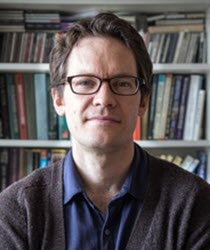
John Delury is Professor of Chinese Studies at Yonsei University Graduate School of International Studies (GSIS), where he serves as chair of the Program in International Cooperation. He is also chair of the undergraduate Program in International Studies at Yonsei’s Underwood International College (UIC), and founding director of the Yonsei Center on Oceania Studies. He is the author, with Orville Schell, of Wealth and Power: China’s Long March to the Twenty-first Century, and is writing a book about US-China relations in the early Cold War.
Based in Seoul since 2010, his articles can be found in journals such as Asian Survey, Late Imperial China, and Journal of Asian Studies, his commentaries appear in Foreign Affairs, Foreign Policy, The New York Times, Washington Post, and 38 North, and he contributes book reviews for the quarterly journal Global Asia, where he is associate managing editor. John is a member of the Council of Foreign Relations, National Committee on US-China Relations, and National Committee on North Korea; he is also Pacific Century Institute board member, Asia Society senior fellow, National Committee on American Foreign Policy leadership council member, and Center on Strategic and International Studies adjunct fellow. He is a member of the Republic of Ireland’s foreign affairs advisory network and is invited to offer his analysis on East Asian affairs with government, think tank, corporate, and civil society organizations globally.
Alison Szalwinski
(Program Director)
Vice President of Research, The National Bureau of Asian Research

Alison Szalwinski is Vice President of Research at NBR. Ms. Szalwinski provides executive leadership to NBR’s policy research agenda and oversees research teams in Seattle and Washington, D.C.
She is the author of numerous articles and reports and co-editor of the Strategic Asia series along with Ashley J. Tellis and Michael Wills, including the most recent volumes, Strategic Asia 2020: U.S.-China Competition for Global Influence (2020), Strategic Asia 2019: China’s Expanding Strategic Ambitions (2019), and Strategic Asia 2017–18: Power, Ideas, and Military Strategy in the Asia-Pacific (2017). Prior to joining NBR, Szalwinski spent time at the U.S. Department of State and the Center for Strategic and International Studies. Her research interests include U.S. policy toward Asia, especially U.S.-China relations and the implications of great-power competition for U.S. alliances in the region.
She holds a BA in Foreign Affairs and History from the University of Virginia and an MA in Asian Studies from Georgetown University’s Edmund A. Walsh School of Foreign Service. Outside of work, she enjoys outdoor activities, including snowboarding, climbing, and triathlons.
Julia Oh
(Group Rapporteur)
Associate, The National Bureau of Asian Research
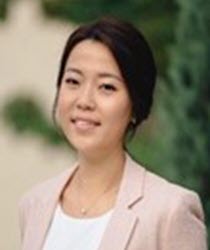
Julia Oh is an Associate at National Bureau of Asian Research (NBR) based in Seoul, South Korea. She also is a Senior Project Officer at the National Democratic Institute, Korea. At NBR, Julia provides guidance on Korea Programming, business development, and strategic relationship building. She was previously a resident fellow at NBR’s DC office. Prior to joining NBR, she worked for the South Korean government in London as a Marketing Assistant Manager for the Korea Trade-Investment Promotion Agency. She interned for one year in a separate research role for the Korea Economic Institute of America in DC, and the United Nations office for Disarmament Affairs in NYC. While completing her MA, she contributed to the Centre for Science and Security Studies (CSSS) in London.
Julia holds BA in Communications from University of Delaware and an MA in International Relations from the Department of War Studies at the King’s College London, where her dissertation focused on the role of North Korea’s nuclear weapons program in domestic propaganda.
Melissa Newcomb
(Program Coordinator)
Senior Project and Grants Manager, The National Bureau of Asian Research

Melissa Newcomb is a Senior Project and Grants Manager with the Political and Security Affairs group at NBR. In this position, Ms. Newcomb manages projects related to Taiwan, cross-strait relations, U.S.-China relations, and the Korean peninsula.
Prior to joining NBR, Ms. Newcomb was the Research Manager at the Global Taiwan Institute and Associate Editor of the Global Taiwan Brief. At the Global Taiwan Institute, she created and managed the Civil Society and Democracy Series. She also previously worked at the East-West Center in Washington, D.C.
Ms. Newcomb holds an MA in International Affairs with a focus on East Asia and Conflict Resolution from the School of International Service at American University. She also holds a BA from St. Mary’s College of Maryland with a double major in English Literature and Asian Studies. She enjoys soccer, yoga, and reading sci-fi novels in her free time.
Olivia Truesdale
(Program Assistant)
Political and Security Affairs Intern, The National Bureau of Asian Research

Olivia Truesdale is an intern with the Political and Security Affairs group at NBR. She supports the U.S.-ROK Next Generation Leaders Program, the Maritime Awareness Project, research, grant writing, and events. Prior to joining NBR, Ms. Truesdale was a Nonimmigrant Visa Unit intern at the U.S. Embassy, Seoul, and studied abroad at Yonsei University. She received a Critical Language Scholarship to study Korean in 2020. Ms. Truesdale is a managing editor at the Claremont Colleges’ student-run Claremont Journal of International Relations and will graduate with a BA degree in Foreign Languages from Scripps College in May. She speaks Korean and Spanish and has an intermediate proficiency in Italian.



